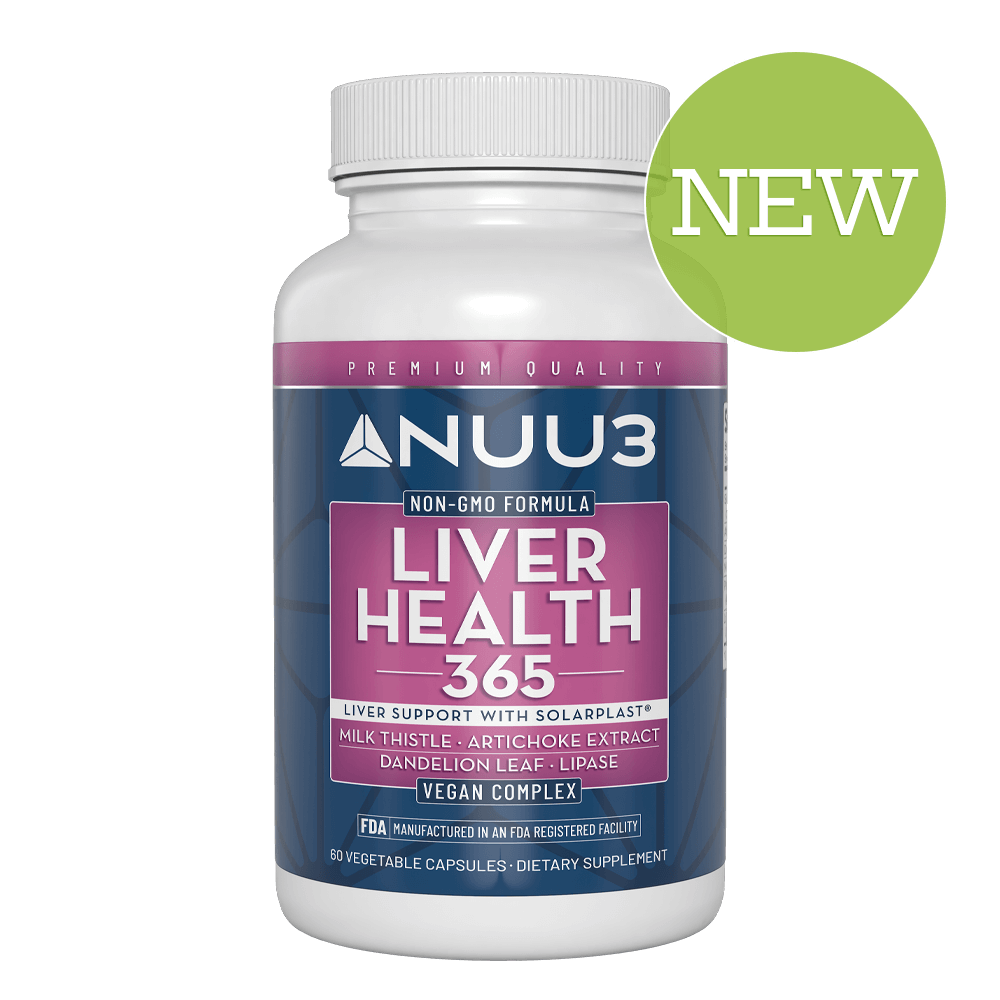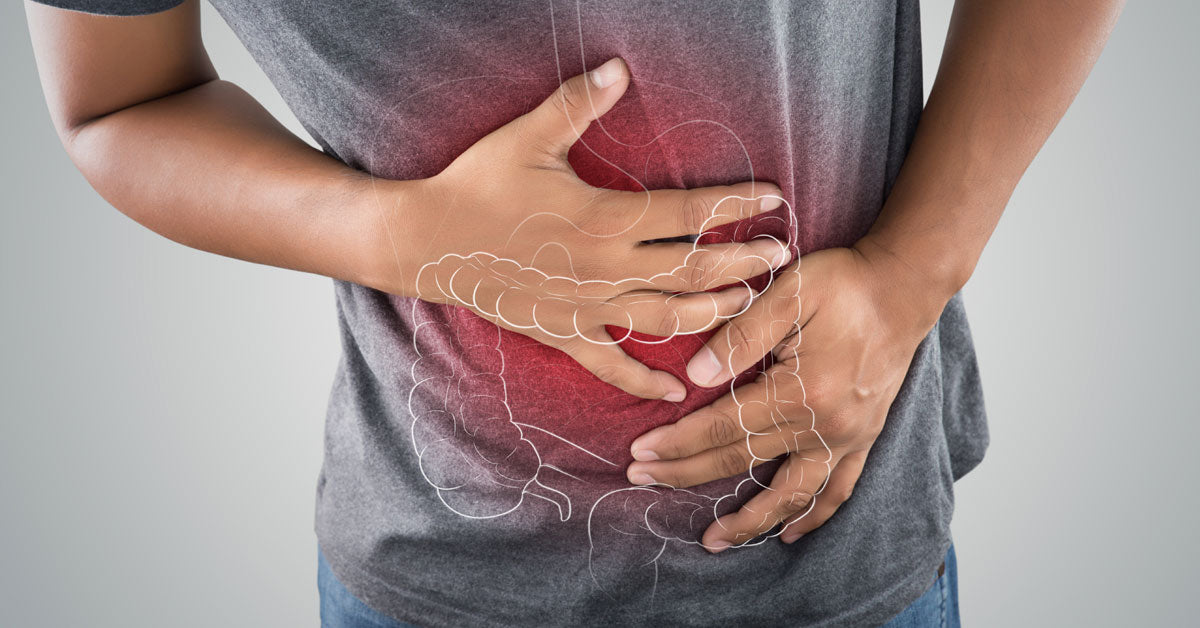Having anxiety is an unpleasant experience, and sometimes, it can affect more than just your mind. Yes, we commonly think about those anxious moments when we’ve got anxiety, but it could also be the reason behind constipation.
When you’ve got anxiety, it’s important to understand how it affects you. Your mind is the first thing to be affected, and as anxiety gets worse, you might find yourself with that feeling of impending doom. Like something bad going to happen. It can even come to ULN completely unexpectedly. Sometimes, we’ve got mild anxiety and it causes physical symptoms - but it takes a while to really find the link. So, can anxiety cause constipation? Well, that’s what we’re going to find out in this article.
Anxiety and Constipation: What Is The Link?
If you’ve got less than three bowel movements within one week, then you’re constipated; but, you’re not alone. In fact, about one in every six people[1] have constipation. Sometimes, it can become a chronic problem - and when this happens, being constipated is not the only symptom you’re going to experience.
Now, is anxiety constipation a thing? Well, according to certain studies, there might be a link. In one collaborative effort published in the BMC Gastroenterology journal[2], multiple researchers wanted to find whether there is a connection between anxiety and constipation. In this review, they found that irritable bowel syndrome, often called IBS, seems to be common co morbidity in people with anxiety and depression. There were 18 studies that these researchers assessed, and among these studies, a total of 7095 participant data were used. This helped the researchers get more details and offer accurate results.
Can Anxiety Make Constipation Worse?
Maybe you’re already constipated. So, then the question changes. Instead of asking “Can anxiety cause constipation?” you might now rather be wondering if it can worsen your constipation. The short answer is: yes. If you’re constipated and you become anxious, then it’s something that can actually make the constipation feel worse.
This is because of the physical impact that anxiety has on your body. It’s not a condition that’s all in the mind - it’s something that can manifest several physical symptoms. For example, chest pain - something that we usually link with heart problems - can actually be caused by anxiety. In cases where you’re having a really bad episode of anxiety, these physical symptoms can quickly become worse and more noticeable.
How Does Anxiety Cause Constipation?
Now we know that there does seem to be a link between anxiety and constipation. But, there’s an important question that remains - why does this link exist?
Well, if you’re asking if anxiety can cause constipation, then it’s important to look at what anxiety disorders do to your body. Yes, we’ve already gone through the fact that anxiety has physical effects on you. But, it’s also something that can put your body into a constant fight or flight mode. This puts stress on areas like your digestive tract - and this stress can lead to the onset of constipation.
Signs and Symptoms of Anxiety Constipation
Anxiety has many symptoms and the thing is, it’s not always just related to your mindset. Yes, if you’ve got anxiety, you’re likely going to experience some mental symptoms. The anxious feeling is something you’re already familiar with. But, there are other ways to tell if you might have anxiety constipation, so let’s take a look at them.
-
Fatigue: When anxiety gets to you, it’s easy to start feeling drained and tired. This is a common sign of anxiety for many people, so take note if it accompanies frequent constipation. Plus, you might also consider a question like “Can constipation cause fatigue?” - and it can, but that depends on some underlying problems.
-
Insomnia: Another way that anxiety can affect you is by causing insomnia. You may find yourself lying awake for hours at night, worrying about things that are completely out of your control. This cuts into your sleep time and can further contribute to fatigue and tiredness the next day.
-
Indigestion: Some studies have actually found that if you’ve got anxiety, you’re more likely to have symptoms of GERD[3]. So, if you have indigestion or acid reflux, anxiety could just be the reason for it. It’s not set in stone, but still a potential cause that you shouldn’t overlook.
-
Changes in appetite: You might also find that anxiety causes changes in your appetite. When you feel anxious, you may not have the same appetite as you usually do. On the other hand, some people tend to eat more when they're stressed out or feel anxious. We sometimes call this stress eating - and it’s something that can make you quickly pack up the pounds.
-
Rapid heart rate: Speaking of physical manifestations of anxiety - did you know that it can also make your heart beat rapidly? In fact, that is a very common symptom. The increased heart rate will also be worse when you experience an anxiety attack.
-
Feeling of nervousness: You’re going to feel nervous if you’ve got anxiety. The nervousness may not be persistent, but when an anxiety attack is closing in, you’ll start to notice it. The nervousness tends to get worse if you don’t do something about the situation that is causing you to experience anxiety.
-
Low sex drive: If you’ve got a healthy sex drive, anxiety can ruin it. When you feel anxious, you’re likely to find that you’re not really in the mood for sex. So, keep this one in mind as well if you’re sexually active.
-
Trouble concentrating: Back to the mental symptoms - anxiety can have a big impact on your concentration. You’ll find that it’s difficult to focus on important things, such as a task you’re supposed to do at work.
Activities to Reduce Anxiety
So, we’ve established that anxiety constipation is a thing. But, what can you do about it? Well, getting your anxiety in order is an important first step. The thing is, there are highly effective treatments that you can use. But, it’s still important to aim for a more natural approach too - as some lifestyle changes and activities can make a big difference.
-
Exercise: We hear that we have to exercise so often, but how much thought do you really put into it? If you’re not exercising, then you’ll start to gain weight and your health won’t be at an optimal level. But, did you know that exercise can also actually help with anxiety? Yes, and it has been proven. If you exercise regularly, symptoms of anxiety will start to become more manageable. Plus, if you’re asking, “Can anxiety cause constipation?” - well, exercise can also help with your digestive health.
-
Dietary changes: Making a couple of changes to your diet is also helpful. Cut out deep-fried foods. Try to avoid saturated fats and sugary foods - these things can make your anxiety worse. Plus, certain foods contribute to constipation. Instead, make sure you eat plenty of fiber, high-quality protein. One may also incorporate a supplement in your diet, such as Nuu3 Gut Health 365. It's a potent daily vitamin that relieves digestive discomfort, increases regularity, and maintains a healthy, balanced gut microbiota.
-
Practice yoga: Want an exercise that’s good for your body and mind? Then yoga is something you should try. It’s simple to get started with and helps to take your mind off situations that might cause you anxiety. Boost your performance during yoga with the Nuu3 Nature’s Superfuel. With a robust blend of fruits and vegetables, it provides powerful daily nutrition for your mind, body, and soul, optimizing health and well-being.
-
Deep breathing and meditation: Relaxation techniques like deep breathing and meditation can also be incredibly helpful. You should try to practice these at least for a couple of minutes every day. Over time, you’ll become more aware of your own emotions and find it easier to let of feelings that usually make you feel anxious. You can try Nuu3 Keep Calm Gummies that can help you calm you mind. The Nuu3 Keep Calm Gummies are easy to take and help you unwind relieves emotional stress.
Should You See A Doctor For Your Constipation?
There comes a time when using just regular strategies that you can do at home doesn’t help with your constipation. Yes, it’s important to note that constipation can be a result of anxiety. But, you also have to keep in mind that there are other reasons why constipation can happen as well.
So, when should you decide to see a doctor if you think you’ve got anxiety constipation and it’s not improving? Well, you can start by working on strategies at home. This could also include taking a laxative. Do exercise, make changes to your diet, and do yoga - all of these can help ease up some of the anxiety that you have.
However, if these things aren’t working, then it’s time to call your doctor. They’ll need to do a physical examination, so be prepared to go to their office. Your doctor may also want to run a few tests. These may require a stool and blood sample. This will help the doctor determine if there’s a physical cause. In case there isn’t, they’ll classify it as functional constipation and start looking at other things that could be the problem.
When you are found to have anxiety constipation, your doctor may prescribe you some medicine to help ease your symptoms and see if it improves the constipation.
Let’s Recap
So, yes, anxiety constipation is something that can happen. It’s rooted in the effects that anxiety has on your body - and this includes your digestive system. When you’ve got anxiety, you’re likely to experience fatigue, insomnia, poor concentration, a low sex drive, and perhaps even consistent nervousness.
Frequently Asked Questions
What is Functional Constipation?
If you’ve got constipation but there’s nothing physically wrong with you, then it’s usually called functional constipation. While no physical problems are causing it, the issue might lie with your mental health. That’s why psychological causes are considered.
How can You Tell the Difference between IBS and constipation?
Constipation on its own isn’t very likely to make you feel pain. But, if you’ve got IBS and constipation, then you might have stomach pain. This pain becomes more tolerable when you’re able to have a bowel movement.
How Long does Anxiety Constipation Last?
It depends and there’s no specific answer. For some people, a couple of days. Others, though, may have chronic anxiety constipation that lasts for several weeks. See your doctor if you can’t get the constipation to clear up within a month.
The Bottom Line
When you’re asking the question, “Can anxiety cause constipation?”, the short answer is yes. That’s because anxiety can have physiological effects on your body. So, if you’re constipated and not sure why, consider anxiety as a possible cause. Of course, it’s not always going to be the reason, but remains something that you shouldn’t overlook.
References
1] ↑https://eprints.whiterose.ac.uk/175217/
2] ↑https://www.ncbi.nlm.nih.gov/pmc/articles/PMC7791666/
3] ↑https://www.medicalnewstoday.com/articles/acid-reflux-and-anxiety










